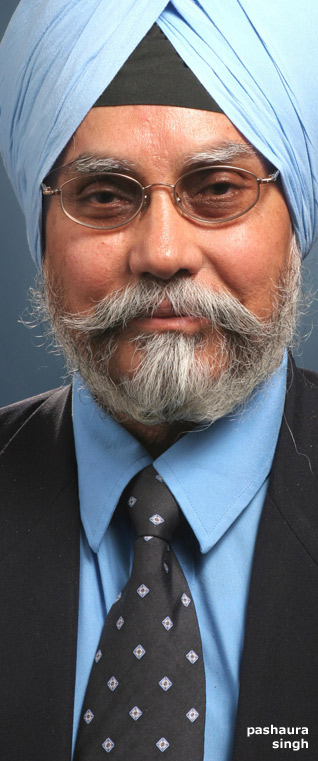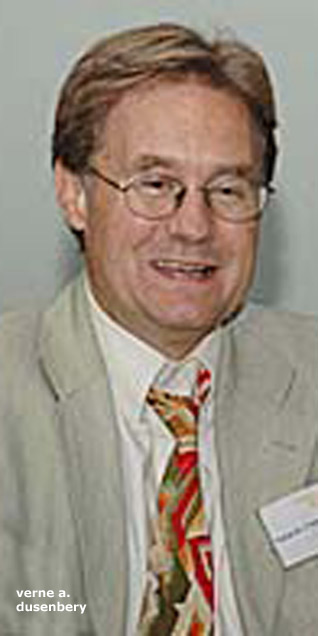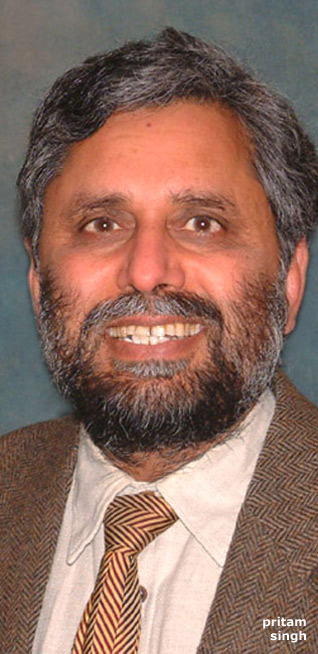Current Events
Abstracts:
(Re-)Building Punjab: Political Economy, Society and Values Conference
UCSC SIKH & PUNJAB STUDIES
Friday - Saturday, March 29 – 30, 2013 • University of California, Santa Cruz
CONFERENCE SUMMARY
Punjab is a state bifurcated between two nations, but also a state of mind. The larger geographic region of Punjab - which now straddles the countries of India and Pakistan -- was the birthplace of the Sikh religion. The Indian state of Punjab, within that larger region, is now the homeland of the Sikhs, the nation’s granary, and a major recipient of diaspora remittances.
But within an economically resurgent India, Punjab is in relative decline, apparently beset by political, societal and environmental problems. This multi- and inter-disciplinary conference will explore the complex relations between the Sikh community and its real and imagined homeland. Individual sessions will be on the historical roots of Punjab’s contemporary society, the state of its politics and political culture, possibilities of economic improvement, challenges of environmental degradation, the role of diaspora philanthropy, and ways in which Punjab’s situation is expressed in and shaped by music and film as forms of cultural production.
ABSTRACTS
Session 1: Sikh Values and Punjab Society in Historical Perspective
Pashaura Singh, UC Riverside
“Sikh Values and Punjab Society in Historical Perspective”
The greater region of Punjab is widely regarded as the homeland of the Sikh
tradition. Although its mention is not to be found in the Sikh
scripture, the Guru Granth Sahib, it received explicit reference in the
contemporary writings of Bhai Gurdas (c.1558-1636) who employed the term
in a stanza that extols “the greatness of the Guru in Punjab.” In the
twentieth century Puran Singh plainly defined the relationship between
the Sikh teachings and the region by saying that “Punjab survives in the
name of the Gurus.” This paper will explore the role of Sikh values in
the development of Punjab society in different historical periods. It
will also address the relevance of those values in the process of
rebuilding of Punjab in modern times.
Session 2: A Case Study of Sikh Diaspora Philanthropy in Punjab
Verne A. Dusenbery, Hamline University
“Budh Singh Dhahan and Guru Nanak Mission Medical & Educational Trust: A Case Study of Sikh Diaspora Philanthropy in Punjab”
In 1979, after twenty years in Canada, Budh Singh Dhahan returned to Punjab to spearhead the development of a medical and educational complex that became, under his leadership, one of the signature diaspora philanthropy projects in Punjab. Drawing upon general research on Sikh diaspora philanthropy in Punjab (Dusenbery & Tatla 2009) and extensive interviews with Budh Singh and other stakeholders (primarily in Punjab and British Columbia), this paper explores two themes.
The
first is the ways that Budh Singh’s project broke new ground in how Sikh
diaspora philanthropy has been conducted in Punjab (i.e., by creating
alternative spaces in civil society from which diasporic actors address
issues of social development through transnational collaborations with
international partners). The second is the ways in which his experience
at the Trust reflects continuing challenges facing Sikh diaspora
philanthropy in Punjab (i.e., in developing and sustaining effective
charitable organizations and in reconciling different development
priorities, management styles, and cultural values of variously
positioned stakeholders).
Session 3: Punjab Politics and Society
Pritam Singh, Oxford Brookes University
“Changing Social Values and Political Culture in Punjab: With Special Emphasis on the Period Since 1966″
The creation of the Punjabi speaking state in 1966 marks a historic change in the political landscape of Punjab in India’s mode of federal governance. The convergence of this political change with the launch of the green revolution in the mid 1960s that unleashed the capitalist transformation of Punjab agriculture and Punjabi rural society led to hugely significant changes in the social norms and political culture in Punjab. This paper would aim to capture the key turning points in Punjabi society and its politics in the last nearly 50 years and would attempt to identify the significance of these turning points.
The paper
would conclude by drawing the implications of the past changes for
Punjabi politics in the near future and would venture to make some
speculative (yet historically rooted) remarks about the medium-term and
long-term future of Punjabi society and politics.
Session 4: The Punjab Economy: Problems and Prospects
Lakhwinder Singh, Punjabi University
“Vision for Economic Development in Punjab Economy”
Punjab's economy remained a symbol of economic prosperity and a role model of economic development among the Indian states for more than three decades since the ushering in of the green revolution. The dismal performance of the Punjab economy during the period of economic reforms relegated the state’s economy from a leading to a laggard one. Punjab is now ranked at number six among the major Indian states in terms of per capita income. Why has Punjab economy slipped to sixth position and turned from a leader to a laggard?
This question is intriguing and
demands answer from well wishers, policy makers, political leadership
and the scholars working on the Punjab economy. Despite the recognition of
the problem and attempts made so far, the reversal in the trend has not
yet occurred. In this paper an attempt has been made to analyze the
factors that are responsible for the slow progress of the Punjab
economy. An alternative pathway in the light of this analysis has been
outlined to rebuild and resurrect the economic development dynamism in
Punjab.
Session 5: Groundwater in Punjab: Environmental Challenges
Rajinder Singh Sidhu, Punjab Agricultural University
“Groundwater resources in Indian Punjab: Degradation, Factors Responsible and Sustainable Solutions”
Water is pivotal for agricultural production. Rainfall, surface water and groundwater reserves are the main sources of irrigation water to crops. Their contribution to total supplies varies from region to region due to different agro-climatic endowments, irrigation infrastructure and policy. In India, around 45% of its area is irrigated. Level of irrigation varies substantially across regions, around 15% in Rajasthan and 98% in Punjab, which is mainly determined by access to groundwater reserves, its fitness for irrigation and the economics of pumping out water to meet the water requirements of agriculture.
The use of groundwater is directly associated with crop patterns, modes of energy supplied and its pricing, cost-return ratio of groundwater usage and the financial position of farmers and their access to credit. This paper examines the rate of exploitation of groundwater resources, factors which caused its degradation over time and techno-policy solutions to ensure its long term sustainability.
Agricultural growth in Indian Punjab was the outcome of high yielding seeds of wheat and paddy, irrigation, fertilizers supported by remunerative output prices, input subsidies, development of market infrastructure, rural roads and electrification and farm machinery. Irrigation acted as a ‘trigger’ leading to the adoption of other technologies shifting the production surface upward. Due to larger degree of certainty in access to irrigation and state policy, use of groundwater resources in agriculture increased due to intensive cultivation of land, shift in crop pattern in favour of more water using crops and adoption of in-efficient water usage practices. Wherever possible, surface water was substituted by groundwater sources. Consequently, over-exploitation of groundwater commenced compared to rechargeable capacity. Water table declined by around 25 meters during 1973-2009 in central Punjab. All the development blocks in this region have turned red, where rate of exploitation is more than 100%.
It is feared that if such trend continues, Punjab may turn into a desert state over the years. To address this challenge, a pragmatic shift in policy stance away from free power to energy and protection of rice crop to promote crop diversification, and scaling up of water saving technologies and practices such as direct seeding of rice, scheduling of irrigation with tensiometer, laser levelling of fields, etc., would be required.
Session 6: Punjab’s Ethical Soundscapes: From Asa ki Vaar to Dhadi Vaar and Hip Hop
Inderjit N. Kaur, UC Santa Cruz
“Punjab’s Ethical Soundscapes: from Asa ki Vaar to Dhadi Vaar and Hip Hop”
Punjab has a rich heritage of music, and song was the original medium of expression of Sikhism. In this paper I engage Canadian composer Murray Schafer’s conceptualization of “soundscapes”, and anthropologist Charles Hirschkind’s related idea of “ethical soundscapes”, to discuss the role of music in Sikh and Punjabi society.
[Courtesy: UCSC. Edited for sikhchic.com]
March 29, 2013
Conversation about this article
1: Basan Singh (Nevada, USA), March 29, 2013, 9:28 AM.
This conference appears to be a wasted opportunity. And I also fear it'll turn into a waste of time. Why? Where are 50% of our population? The women? All you have done is brought in the very same people who have either caused the problem, through neglect or negligence, or haven't been able to find the solutions to date. Until and unless you stop behaving like Indians and allow fresh blood to come in and take over the challenge ... and therefore fresh, daring, courageous ideas ... all we're doing is playing the fiddle while Rome burns!
2: Lara Kaur (USA), March 29, 2013, 9:34 AM.
Reading the other article on the sikhchic.com homepage this morning -- on the miracle performed by Sikh farmers in South India -- the million dollar question that needs to be addressed at the conference, at the very outset I'd suggest, is why Sikhs are able to help the rest of India pull itself out of the doldrums while their own homeland is sinking? Madurai is not the only instance of the miracles they have performed. Rajasthan and the Terai region come to mind instantly, as two other examples. Is it possible that powerful external forces are bent on destroying Punjab at all cost? I smell the proverbial Indian shoot-yourself-in-the-foot game, if you ask me!
3: A Singh (Bay Area, California, USA), March 29, 2013, 3:34 PM.
@ Basan Singh: It is not the fault of the conference organizers that there are very few Sikh women in academia that focus on Sikhs or the Punjab. In the American professoriate, I can only think of Parminder Kaur Bachu and Nikky Guninder Kaur Singh. When was the last time you encouraged a woman invest 10 years after graduating high school to pursue a PhD in the social sciences or humanities rather than becoming a doctor, lawyer, engineer, or pretty housewife? Be part of the change you want to see in the world.
4: Gobind Singh (Illinois, USA), March 29, 2013, 3:50 PM.
A Singh ji (#3): that's the lamest excuse I've heard for a dismal failure to do a job in a professional manner. First of all, you say, there are only two people you know of in the "American Professoriate"! Well, the conference organizers didn't mind hauling in male professors from India and the UK, but women have to be only from the US? Also, they had no hesitation in roping in figures from outside the "professoriate" - such as Narinder Singh and Inder Mohan Singh - but they suddenly became shy in contacting the non-professoriate from the US? Or from India and the UK? It's pure laziness, if you ask me. There's no dearth of the brightest of Sikh women in any field of expertise! In the US or elsewhere.
5: A Singh (Bay Area, California, USA), March 29, 2013, 6:00 PM.
@ Gobind Singh ji: I agree that there could have been more representation of women in the last panel, and the conference could have reached out to more scholars internationally, but as a current PhD student in the social sciences (who is not affiliated with the conference or its organizers, for what that's worth), I can tell you the number of qualified Sikh women who have PhDs in the social sciences who focus on Sikh or Punjab studies is small. Perhaps a step in the positive direction for us here would be to compile a list of female Sikh scholars who work on Sikh values, diasporic philanthropy, Punjabi politics, Punjabi political economy, Punjabi groundwater, and Sikh ethnomusicology, which are the topics being discussed. If there is no dearth of Sikh women as you claim, it shouldn't be difficult.
6: Manjit Kaur (Edinburgh, Scotland), March 30, 2013, 7:48 AM.
Dear A Singh ji: There is so much wrong in what you say, that I can only chalk it down to a) the naivety of one who is still a student, and b) your ardent desire to be an apologist for academia, of which you are part. I should say, before I go further, that I admire both the co-organizers of the conference: Nirvikar Singh and Inderjit Kaur. They're both competent and learned, and I know they are doing good work under the aegis of this excellent Sikh Studies Chair. But I simply cannot condone the intellectual laziness shown on this occasion by once again neglecting 50% of the community ... for no intelligent or valid reason imaginable! A Singh ji: the first area of interest you mention in your criteria is "Sikh Values". You mean to tell me that no female scholars could be found to contribute to the topic amongst Sikhs or non-Sikhs in America or elsewhere? Piffle! You have prompted me to look more closely at the roster of those who have been invited to contribute to the conference. A number of them, I must tell you because I know, have ZERO expertise in the self-stated areas being covered by the conference. Moreover, I -- while sitting 10,000 miles away -- can think of a dozen Sikh women in California alone who would have been at least as useful (I'd even venture to say, MORE!) than some of those who are on the current list. In EVERY area, not just the catch-all "Sikh values" rubric. I am deeply disappointed in this latest failure, particularly because, 1) it has happened in academia, the last place where this should've happened, and 2) at the hands of otherwise good and well-meaning people. Pity!
7: Aman (California, USA), March 30, 2013, 7:59 AM.
A Singh ji, you say: "Perhaps a step in the positive direction for us here would be to compile a list of female Sikh scholars ..." Are you kidding? Isn't this the very FIRST thing that should've been done when planning for the conference was commenced? Heart-broken, I do not blame the predicament of the Sikhs in Punjab solely on the Sikhs, because there are many factors behind the mischief. But, looking at the waste of this opportunity when things could've been done right by bringing new ideas and energy, all I see reflected is the very malaise in Punjab and the resulting failure to do anything meaningful.
8: Kuljit Singh (San Francisco, California, USA), March 30, 2013, 10:04 AM.
Looking at Session #7 of the conference, titled "Punjab's Future - What's to be Done?", I don't understand the make-up of the panel. No doubt Narinder and Inder Mohan are intelligent and successful people, but they have NO training, experience or background vis-a-vis the topic. Michael Singh is a brilliant film-maker, but - given his training and career - couldn't possibly be of much help on the topic at hand. The only appropriate person on the panel is the brilliant Dr Ajit Singh. Why isn't he centre-stage in the conference? And they couldn't find any Sikh women in California who could do a better job than the three who simply shouldn't be on the panel? The fog that has permeated our thought-processes and our decision-making is in itself mind-boggling.
9: Harman Singh (California, USA), April 01, 2013, 5:05 PM.
As someone who actually attended the conference (and no, I was not one of the speakers, invited guests, organizers, or friends of the organizers), it was extremely well organized and intellectually stimulating. I came back with a firm grasp of the current economic, political, and ecological landscape of Punjab. I agree with some of the above criticism of the conference.






